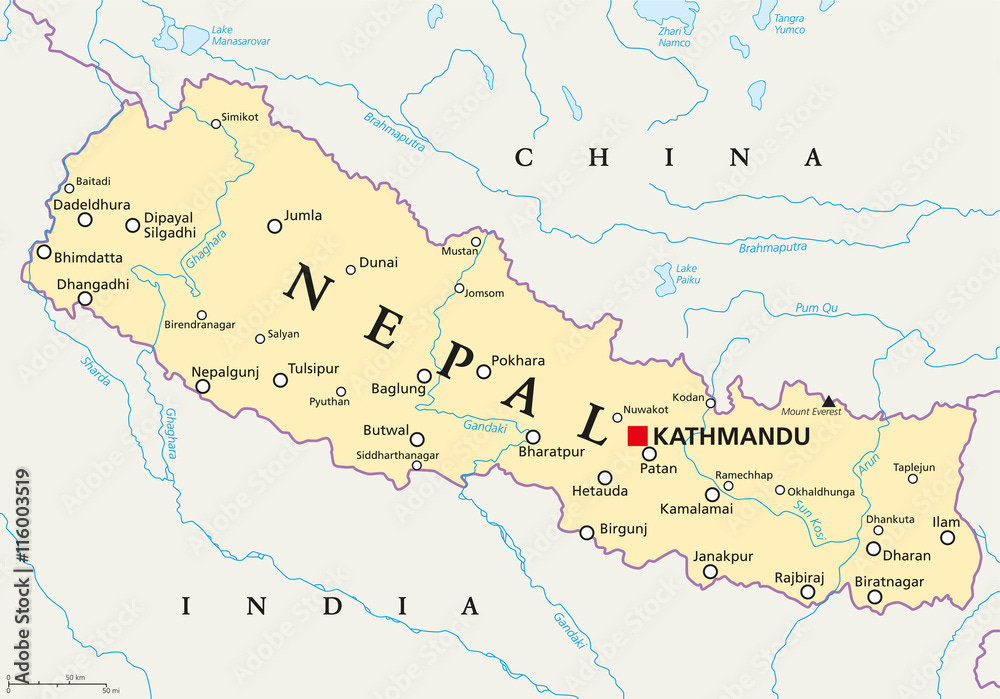We spent just over two weeks in Nepal and in that time were able to see much of the country and experience a little bit of what it is like to be a Christian in Nepal, for which we feel very grateful.
We landed in Kathmandu and stayed for a few nights with a pastor, his wife and their twelve kids (ten of whom are fostered). We appreciated being part of their family and having somewhere to stay after landing in a new country. While we had some time to explore Kathmandu, including the famous Buddhist Stupa, our priority was to spend time with this family and their local church community. We attended several prayer meetings, kids’ church and a Sunday service and loved focusing on and worshipping God.

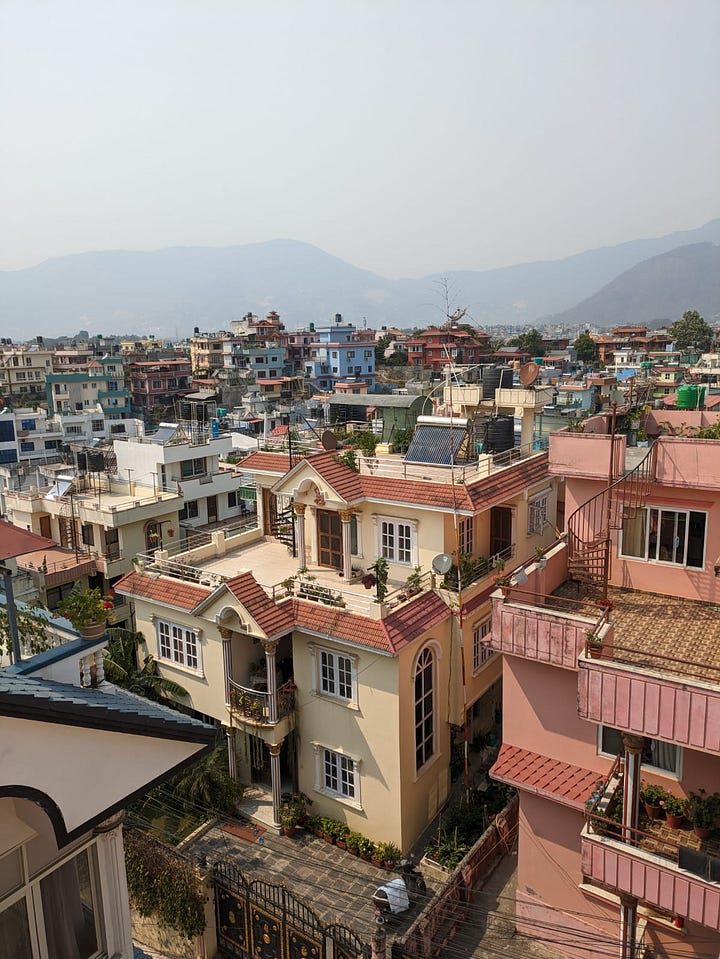

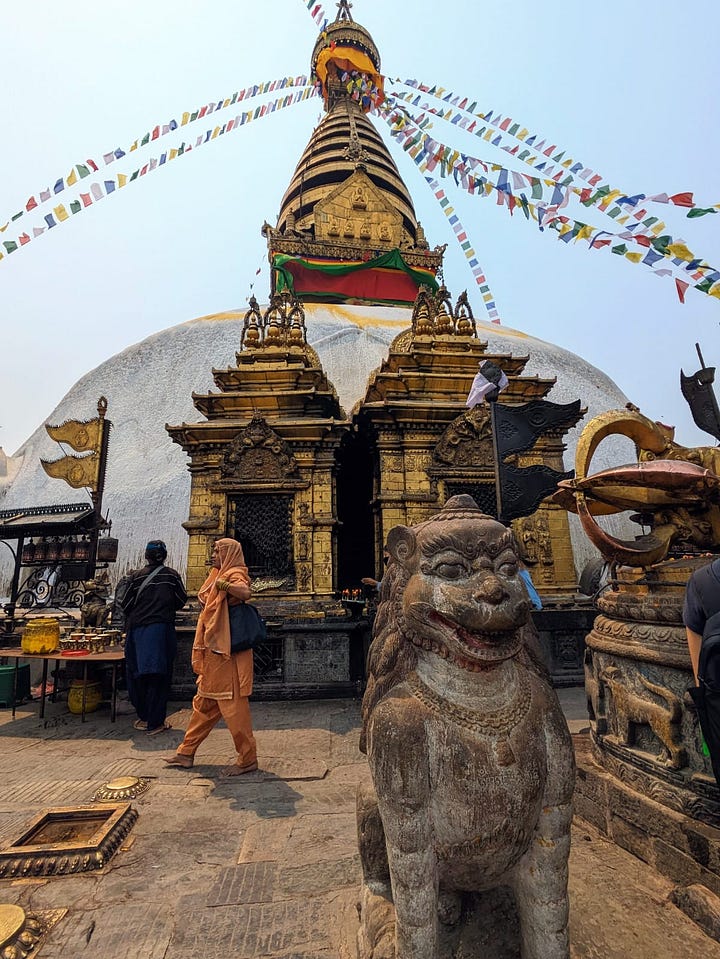
Unlike in Kochi, the churches were involved with in Nepal were not English-speaking, and usually there was only a limited number of people whom we could communicate with directly. At first it was quite disconcerting being at church services where we didn’t understand what was being said, prayed, or sang. In Kathmandu we often went to more than one church gathering per day and so spent a lot of time listening to things we couldn't understand. However, we felt like it was a lovely opportunity to have time with God for His sake alone and that if we wanted to, we could make it a dedicated time to worship God. It sometimes was difficult to do so as there was loud singing, preaching, or communal prayer happening around us which we didn't understand. But we remembered what the Book of Revelation describes as the elders and other beings just worshipping Jesus for eternity, and felt that even if we couldn’t understand anything else, we could just pour out our worship to Jesus over and over.
We also spent a few nights in Pokhara seeing the sights and meeting with some connections who are there in response to God. Pokhara is usually a very picturesque city, but for most of our time there it was covered with smoke from forest fires which only started clearing near the end after some much-needed rain.
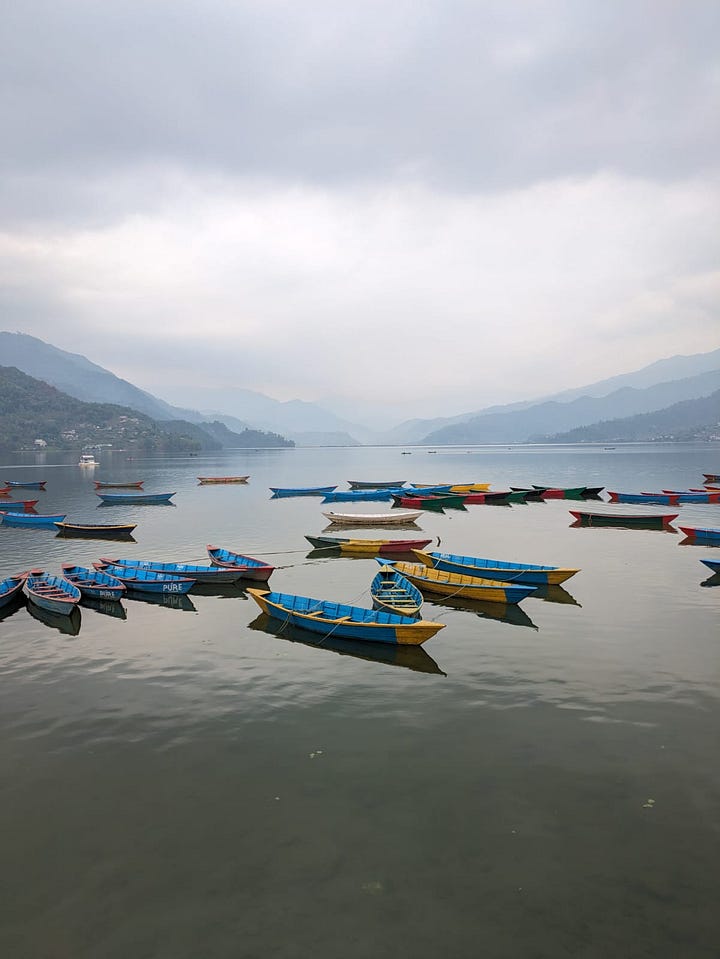
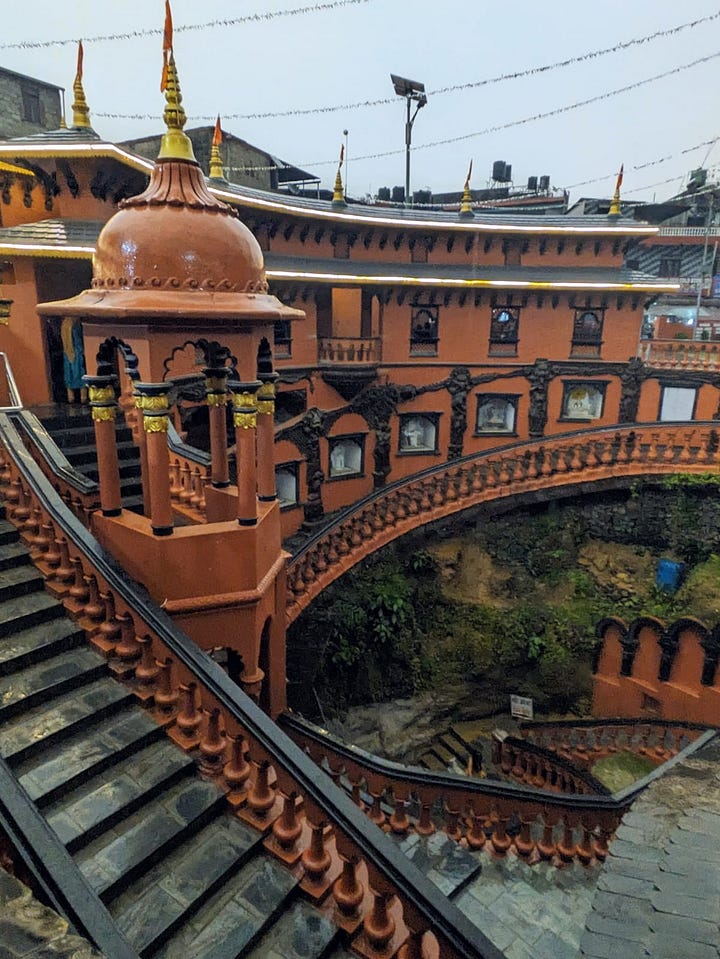
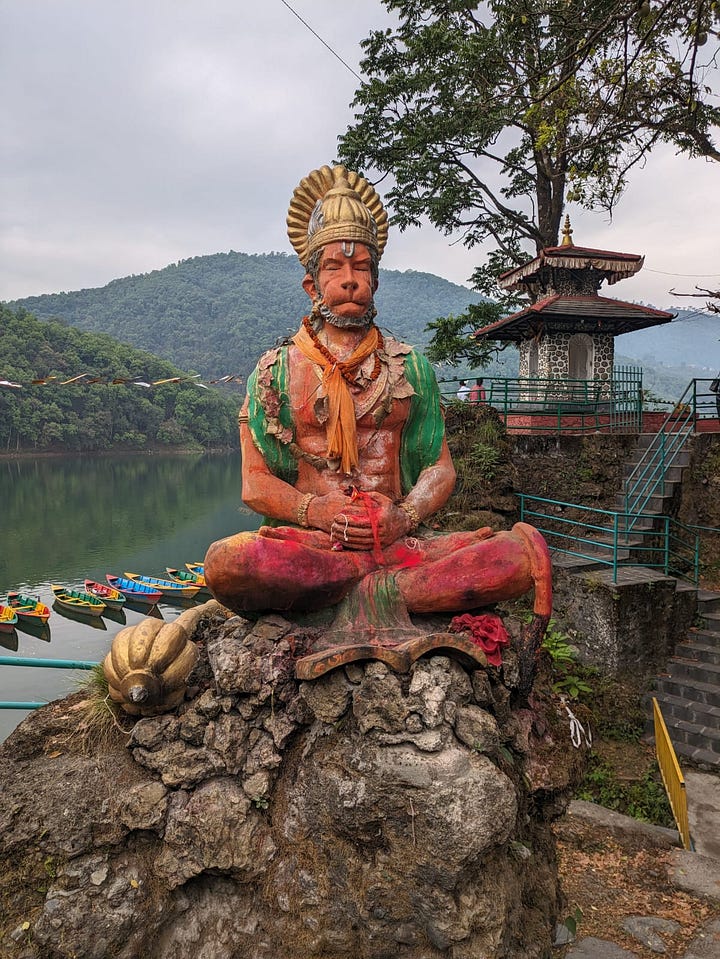
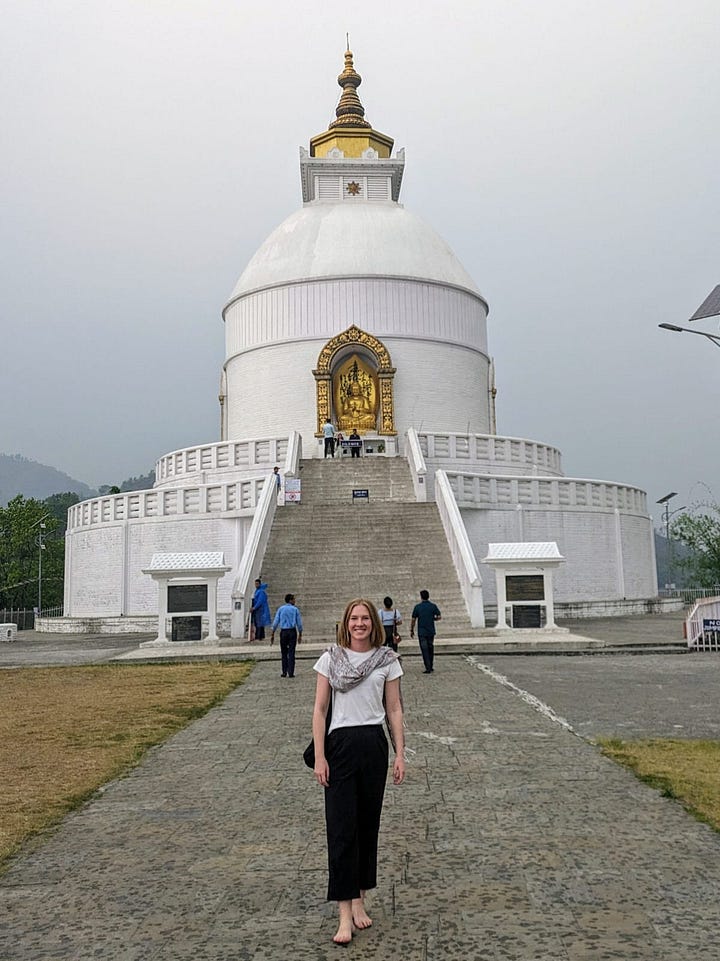
The bulk of our time in Nepal, however, was spent with a pastor from the south. This involved being with his family and church at the church mission centre as well as visiting believers in remote villages. This pastor has a real heart for encouraging these believers in their faith and was excited for us to join him in building them up and edifying the Body of Christ together. Travelling to remote Nepali villages certainly isn’t easy, and to get to each place we had to use a variety of transportation — riding on the back of motorbikes down loose rocky roads, squeezing onto a local bus which drove along a mostly dry riverbed (while some passengers sat on top of the bus), four-wheel driving up washed out dirt roads, and walking between villages on mountain paths. We had the privilege of being invited into peoples’ homes to eat and sleep, which often involved them giving us their bed for the night while they slept in another room or on the floor. They also fed us a lot of dal bhat, a traditional Nepali food which consists of rice, spicy lentil soup, and a few side dishes such as greens and some local chicken. We were sometimes embarrassed, but always very grateful, for their hospitality and kindness.
At each village we had a time of sangati (fellowship) which involved singing worship songs and praying with the believers who had gathered. The groups usually consisted of between ten and twenty people, though sometimes as few as four or five. On each occasion the pastor asked us to share something with the people which he could translate to them and then expand upon. Initially we felt daunted, as we wanted to say something helpful and relevant, but we didn't know anything about the people we were speaking to or their relationship with God. We also didn’t want to have a set speech that we rolled out each time. But not having a plan left us much more dependent on God, which is the best way to be. On some occasions we felt like God prompted us to share something specific, but other times we didn't feel a particular direction from God. It was good chatting about it together and realising that we didn’t need to say the ‘right’ thing or the ‘relevant’ thing, but instead could just share what we knew of our God and encourage people to love Him and draw closer to Him, which is the key for all Christians regardless of cultural context.
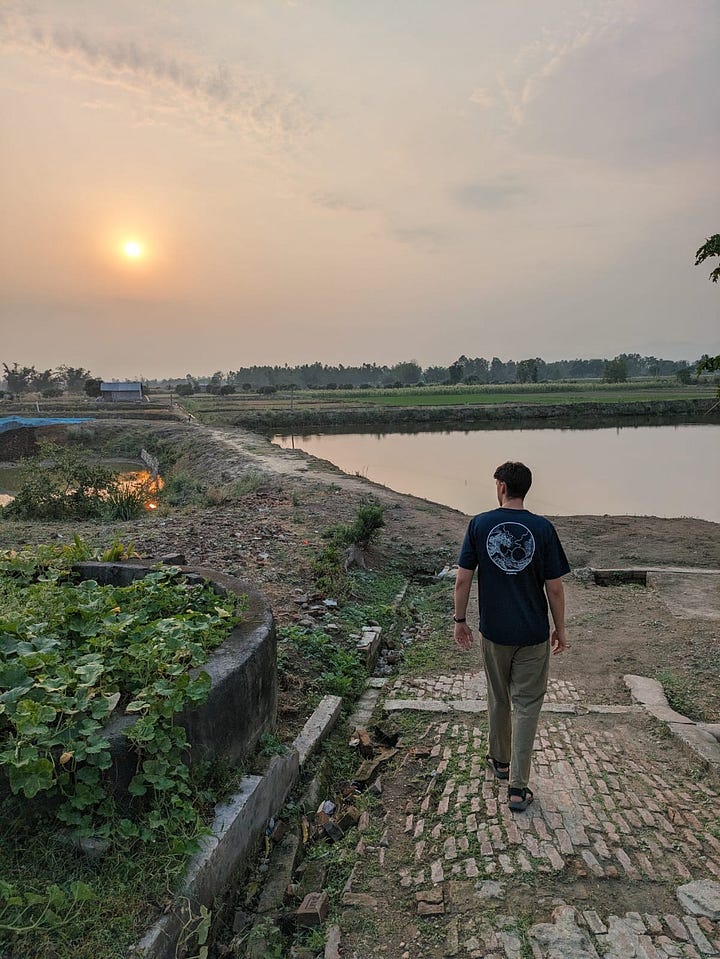
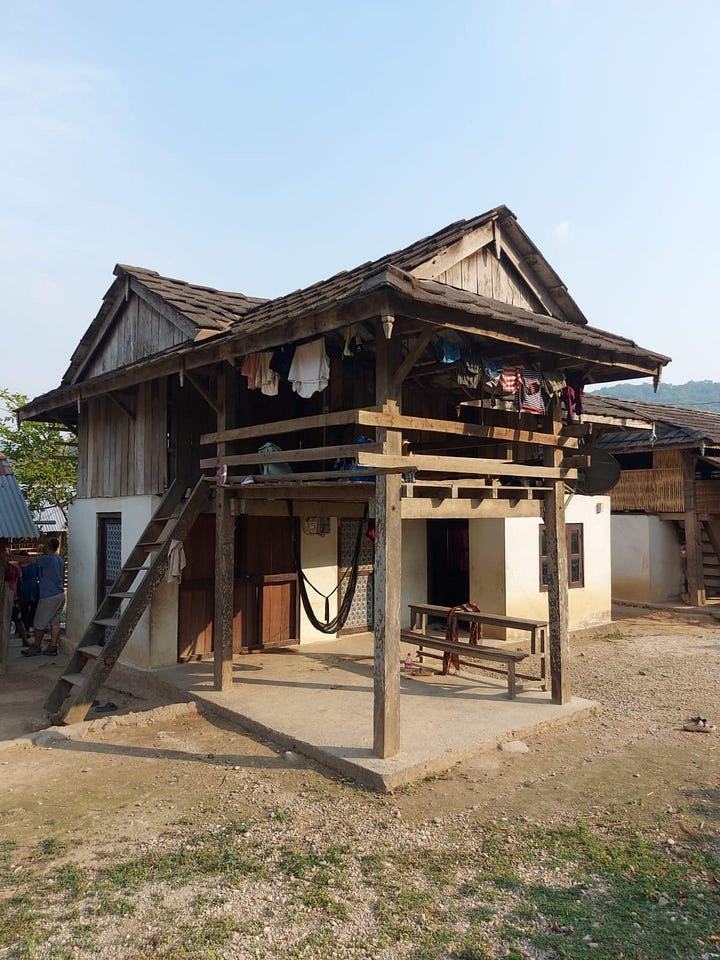
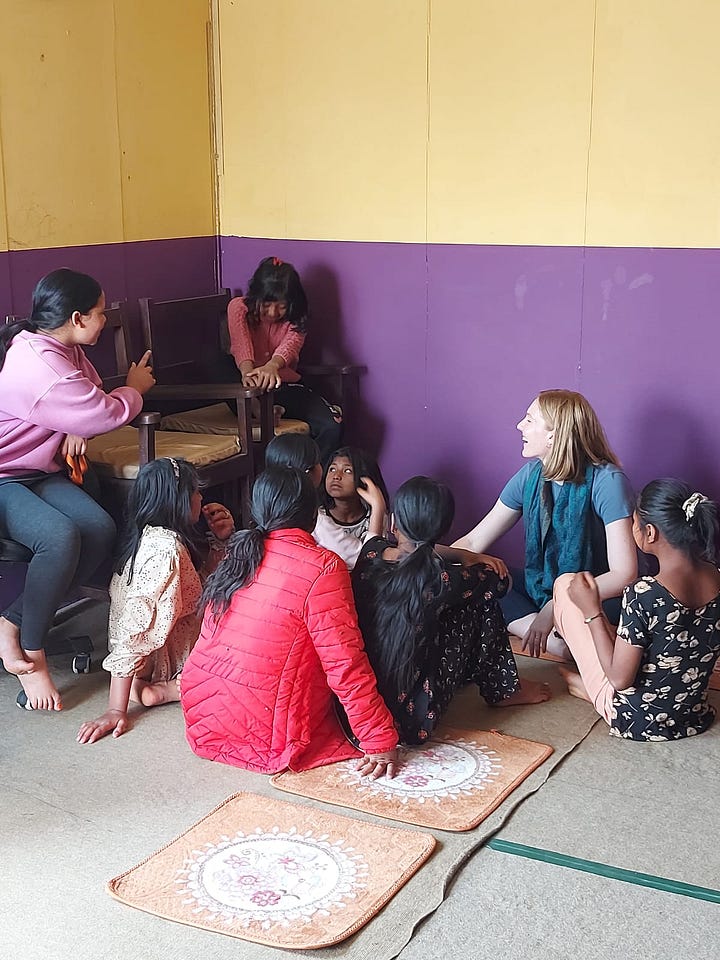

Probably the recurring theme in what we felt to share during each sangati is something which is pertinent for us as well — that we need to be seeking God out each day and responding to what He has said to us that day. During one meeting, Alex shared about how in the wilderness, God provided manna each day for the Israelites. God could have provided them food for weeks on end, but instead He gave them what they needed for that day and if they tried to store up the manna, it went stale and rancid. Likewise, in our adventures in faith we feel like God continues to put us in new circumstances because He delights in us depending on Him each day and not relying on our own experiences. We love being reminded that we are not becoming more experienced travellers, but rather are learning to depend more and more on God as our provision.
Witnessing what it’s like to be a Christian in Nepal has been quite stirring, especially spending time with believers in the remote villages. Christians are only around 3% of the population and viewed as an aberration, so it is a real cost to turn from the prevailing culture and religion to become a follower of Jesus. Though it is not quite as bad as it was in the days of Prem Pradhan (whose book Apostle to Nepal we highly recommend as a short but moving read) and other early missionaries to this country, the government currently suppresses Christianity and many believers told us how their own villages and families turned against them when they became Christian. They have been prevented from accessing the communal water supply, kicked out of their home, or denied medical care. The love that the pastor and his wife feel for these believers is lovely in its God-centredness and they have spent years travelling all over Nepal to reach and encourage Christians in remote places.

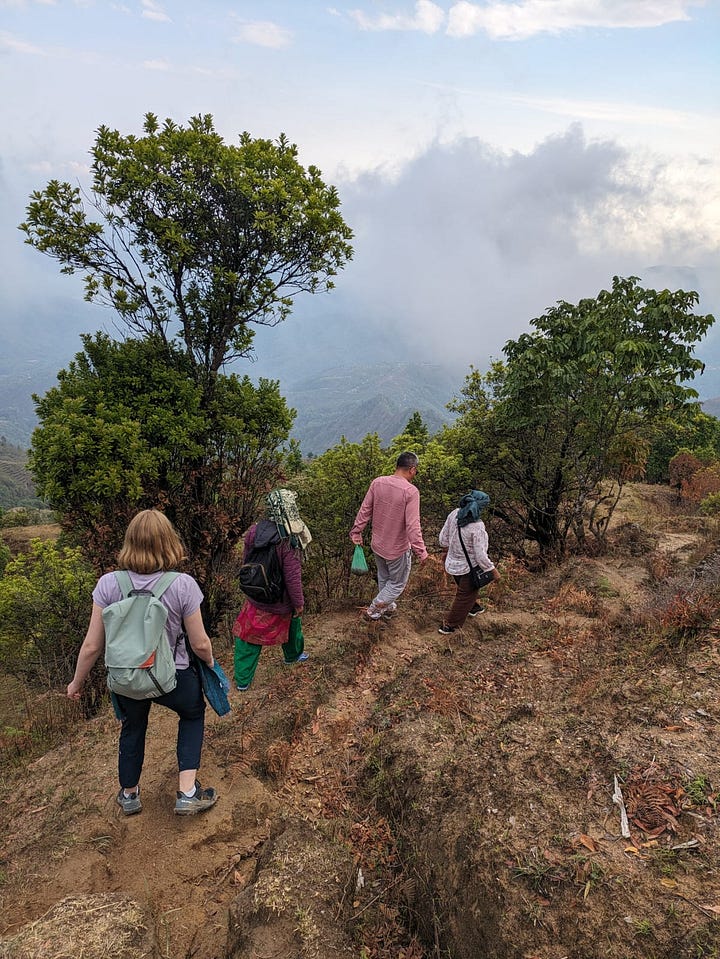
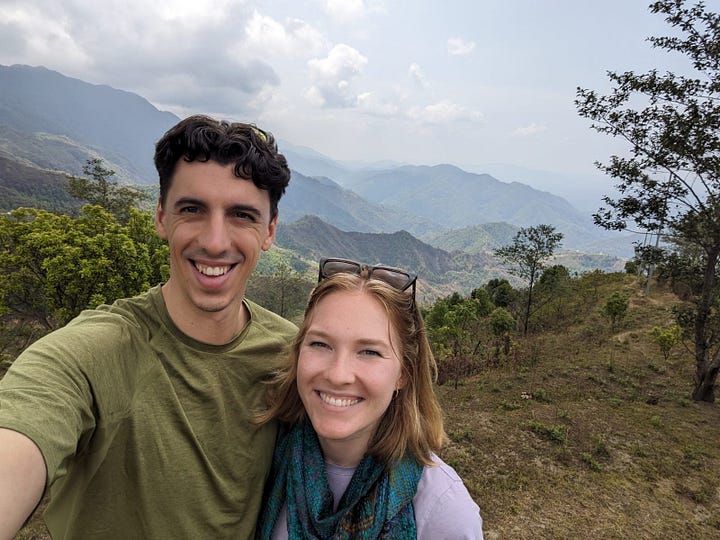

Sitting in village homes with a small group of believers, praying together and eating together, learning new worship songs, and hearing scripture taught and applied, all while your country openly despises you and mistreats you — it is very much like being part of the first-century church. For us, it was a real privilege to be able to encourage and love our Christian brothers and sisters in a real and personal way, even if only for a short while.



